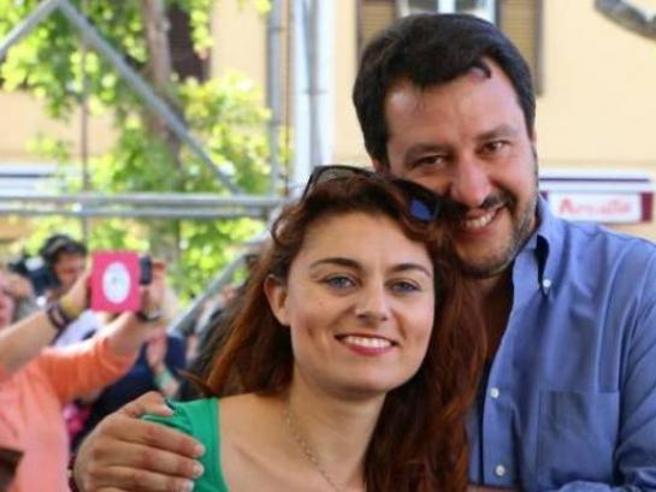By UME
Susanna Ceccardi, LEGA MEP, on the fight against illegal immigration, the lessons of Afghanistan and the difficulties of a common foreign policy.
Illegal migration across the Mediterranean to Italy has increased sharply this year. What are the causes?
Susanna Ceccardi: Illegal migration occurs when countries do not take decisive action against human trafficking. And they help NGOs like Carola Rackete, who often amplify this illegal flow. The coasts must be patrolled and controlled, the ports must be closed, and before that, departures from the African coasts must be stopped. When Matteo Salvini was interior minister, the number of landings in Italy dropped dramatically: a clear
sign that if we want, we can do more and do better.
Looking at the debate in the EU, one gets the impression that the focus is on the distribution of migrants rather than on the protection of the external borders. How do you see that?
Ceccardi: Unfortunately, that’s exactly the case.
Europe is focusing on the consequences without addressing the root causes of the problem. Indeed, the Malta agreements and any attempt to redistribute the refugees to the Member States proved to be a failure. If the approach does not change and it is not understood that the only solution is to stop emigration, in a few years we will still be discussing migration without having achieved a concrete result.
Do you expect an increase in illegal immigration to Europe in the face of crisis states such as Libya, Syria and Iraq in our neighbourhood and the recent Taliban takeover in Afghanistan?
Ceccardi: Unfortunately, it cannot be otherwise. The handling of the withdrawal from Afghanistan was a foreign policy failure of Democrat Biden, for which we will now all bear the consequences. Thousands of civilians have fled Kabul, with more to follow in the coming months. And there is a danger that foreign fighters could sneak in, a risk that Europe cannot take. The bloody attacks in our cities in recent years remind us of this.
How should the EU deal with the Taliban? Is it possible to work with them?
Ceccardi: The fact that the Taliban have taken power in Afghanistan is unfortunately a fact. I think it is an unacceptable political decision that we should definitely work with them. I have not forgotten the videos of those who cut off the heads of innocent people or of women covering their faces for fear of violating their religion. There is no dialogue with the Taliban, instead we are working with Pakistani diplomacy to solve this problem that concerns us all.
EU High Representative Borrell said the EU needed a rapid reaction force because of the chaotic evacuations from Afghanistan. How do you see that?
Ceccardi: In my opinion, the problem is not the European army, but rather the lack of a minimal foreign and defence policy strategy. Once again, Europe is making the mistake of using an instrument in the mistaken belief that it can achieve a strategic outcome.
It is the same story as the euro, which was introduced with the aim of homogenising the various economic systems of Europe: it began with the aim and not with the starting point, i.e. a fiscal and monetary policy. As a result, especially in the first years of its introduction, the euro did not bring the different national economic systems closer together, but rather distanced them from each other. The model is still that of a confederal Europe, a federalist Europe that respects individual national realities. This also applies to the defence of our continent.
The United States is not entirely uninvolved in crises in the European neighbourhood. Should the EU emancipate itself from the US in foreign and security policy?
Ceccardi: Our historical proximity to the U.S. should not prevent us from being a little more proud of who we are, and especially of what we represent in terms of history, trade, and economy. You can have good relationships with everyone without denying your identity and selling your heritage.
Does the EU have the potential to become a power on an equal par with the US and China, also in political terms?
Ceccardi: The potential is there, and how! But the approach in Brussels needs to be changed. China and the US come to the same conclusion, albeit from different angles: their countries come first.
Biden’s own policies, for example, have not changed against the much-maligned Trump, quite the opposite. This shows that U.S. behavior does not change depending on the president. This is where Europe should turn around and put Europe and Europeans first.
The interview was conducted by Bernhard Tomaschitz.
This article first appeared on ZUR ZEIT, our partner in the EUROPEAN MEDIA COOPERATION.

